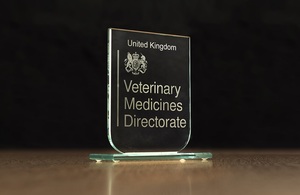Regulators urge safe giving to support Ukraine

The Charity Commission and Fundraising Regulator have urged the public to ‘give safely’ to registered charities as people make generous donations to causes helping to support and protect people affected by the invasion of Ukraine.
As the conflict and ensuing humanitarian situation in Ukraine continues to escalate, it is vital that charitable donations of goods and money reach their intended causes. UK charities are pivotal to a collective response to this crisis.
The Disasters Emergency Committee, a coalition of 15 leading UK charities, has launched its collective appeal to provide emergency aid and rapid relief to civilians suffering during the conflict. Many registered charities are also helping to provide vital life-saving services, like water, food and healthcare, to those caught up in the conflict, including those forced to flee to neighbouring countries.
By giving to a registered, regulated charity, the public can have assurance that their funds will be accounted for in line with the charity law framework. Established charities with experience of responding to disasters are usually best placed to reach victims on the ground.
Members of the public initiating their own informal fundraising appeals that are not linked to established registered charities should be aware of the ongoing responsibilities associated with overseeing and managing funds and ensuring they are applied in line with donors’ wishes.
People looking to donate to causes working in Ukraine and neighbouring countries, should make a few simple checks before giving:
- check the charity’s name and registration number at www.gov.uk/checkcharity. Most charities with an annual income of £5,000 or more must be registered, and you can use the advanced search function to identify charities working in specific regions and countries
- make sure the charity is genuine before giving any financial information
- be careful when responding to emails or clicking on links within them
- contact or find out more online about the charity that you’re seeking to donate to or work with to understand how they are spending their funds
- look out for the Fundraising Badge on charity fundraising materials, this is the Fundraising Regulator’s logo which shows that a charity has committed to fundraise in line with the Code of Fundraising Practice
Helen Stephenson CBE, Chief Executive of the Charity Commission said:
The public, as always in times of crisis, has responded generously to help those in dire need in Ukraine itself or who have escaped to neighbouring countries. It’s important that this money goes to those who need it most, those whose lives have been uprooted by fighting. We encourage everyone to follow our simple steps to check that their money gets to its intended cause. Donating to a registered charity is a good way to feel confident of that.
Gerald Oppenheim, Chief Executive of the Fundraising Regulator said:
The devastating situation in Ukraine has captured the hearts of people across the UK, leading to an outpouring of public generosity in response to fundraising campaigns. But people should think carefully before donating goods or money, so that their donations reach the people who need it most. Charities are responsible for making sure that their donations are used for the purpose they were fundraised for. That is why, if you are thinking about supporting a fundraising campaign, you should make sure that it is for an established, registered charity that is subject to charity law and fundraising regulations.
Notes to editors:
- Further tips on giving safely to registered charities is available on GOV.UK
- The Charity Commission is the independent, non-ministerial government department that registers and regulates charities in England and Wales. Its purpose is to ensure charity can thrive and inspire trust so that people can improve lives and strengthen society.
- The Fundraising Regulator is the independent regulator of charitable fundraising in England, Wales and Northern Ireland. Further guidance on giving safely to charity is available on the Fundraising Regulator’s website.
- If you think that a collection or appeal is not legitimate, report it to the police. If you think the collection is fraudulent report it to Action Fraud over the phone at 0300 123 2040 or online.
Last updated 16 March 2022 + show all updates
-
Edited final bullet, detailing the Fundraising Badge is the Fundraising Regulator’s logo
-
First published.

